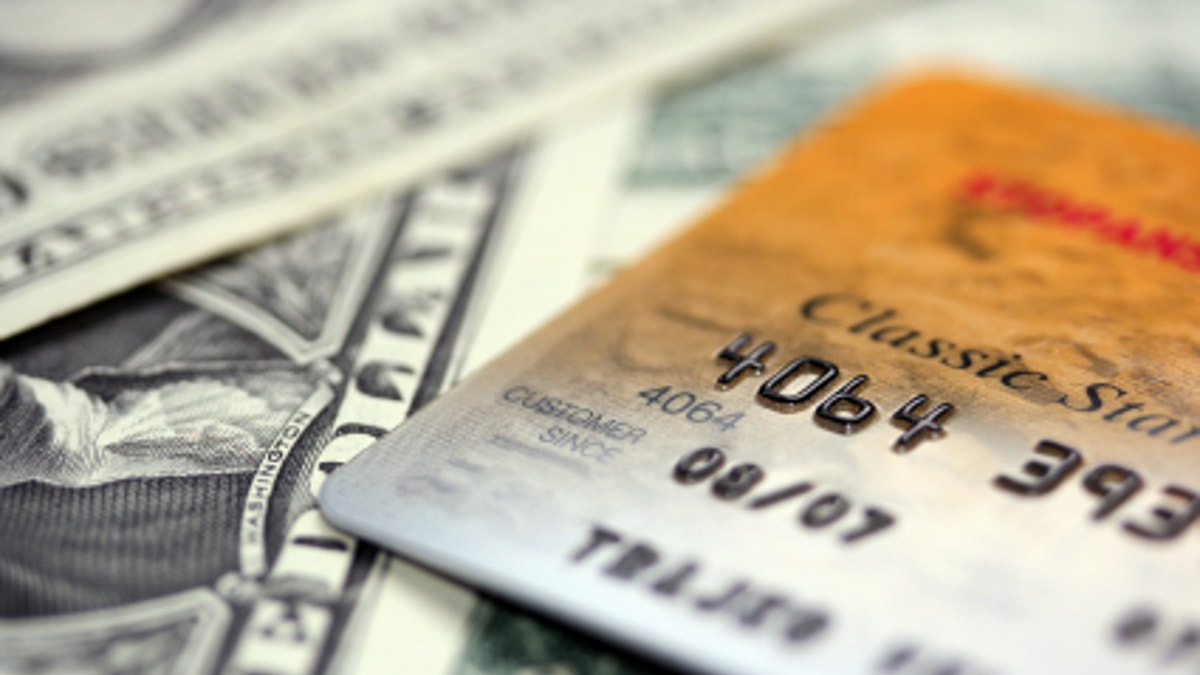
Close up picture of credit card puted on dollars
Exactly a century ago, the United States was a highly charged magnet for immigrants around the world. Thousands entered Ellis Island each day on the hope of making a better life for themselves and their families. Two of those immigrants were Jeno and Sara Friedman; they would become the parents of Milton Friedman, one of the most influential and important economists of the 20th century.
Dubbed the “grandmaster of free market economic theory” by The New York Times, Friedman’s writings, especially his 1980 book “Free to Choose,” authored with his wife Rose, refuted popular claims that “more government” would improve the quality of our lives. Milton Friedman was the most ardent spokesperson advocating the complete opposite. Voluntary choices of individuals rather than arbitrary dictates of the state, he argued, should be the default mode of human life. Government is justified only insofar as it preserves, protects and defends individual liberty.
On the 100th anniversary of his birth this week, one may wonder what the Nobel laureate would say about the more controversial policies now unfolding across America. What would Friedman have thought about the recent advances in school choice, the idea he developed in 1955? How would he react to government’s decision to tax Americans who do not purchase health care? Would Friedman take a position regarding the financial impact of soaring public union pensions on state economies? As an expert on monetary policy, certainly Friedman would have an opinion regarding the federal government’s bailout of the financial industry and its impact on our personal freedom.
[pullquote]
On school choice — the principle that all parents should have access to their child’s education funding so that they may choose whatever learning environment is best for their child — I believe Milton would say we’ve come a long way, but not nearly far enough.
Today there are 39 voucher and tax-credit programs in 21 states and the District of Columbia offering more than 200,000 children educational freedom. In the past two years alone, more advancement has been made in school choice than in the previous 20 years. Yet most American parents still are not free to choose their child’s school. Limited by financial resources of their parents, children living within arbitrarily drawn boundaries are assigned to government-run institutions. The competitive, diverse, and innovative system of high-quality educational options Friedman advocated is not yet a reality.
On health care, Milton likely would have disagreed with the massive centralization of an industry -- a consequence of the Affordable Care Act. Moreover, its central tenet -- that Americans are forced through taxation to engage in certain behaviors-- resembles what Milton’s parents tried to escape when coming to the U.S. in 1894. The results, Friedman might have said, would be a lowering of quality accompanied by a significant increase in cost.
Friedman was particularly dismayed at how unions continue to drive up taxpayer costs in places like California. Today, public employee unions and their largess have contributed to multiple cities to filing for bankruptcy. Friedman believed a free nation should never be held hostage to monopolies, including trade unions. He would have been heartened by progress made by strong leaders in several states to bring the public sector more in line with the private sector. Still, Friedman would likely have agreed that much more needs to be done as teacher pension liabilities alone approach $1 trillion.
As for those bailouts, it is highly doubtful Friedman would support propping up any institution that cannot compete in the free market. Milton’s writings on monetary policy were sternly against actions that could cause inflation. But he also did not favor “easy money,” which has become the worldwide solution to the ongoing financial crisis. Friedman believed banks, governments, and individuals must keep their fiscal house in order.
Ultimately, we can rely only on Friedman’s writings to determine what he might have said to the issues we face today. Yet we can rest assured; at the core of his work was a commitment to the freedom of individuals over the collective force of a centralized government.
Just like in the early and mid-20th century, today the threat of central power and planning is threatening Americans’ freedom and quality of life. And although Milton Friedman is no longer with us, the vision he expressed through his writings endures.
Since his passing in 2006, the Friedman Foundation has sponsored annual events around the world to spread the ideas espoused by Milton Friedman. On July 31, more than 140 events will be held in 50 states and in 44 counties honoring the life and legacy of Dr. Friedman, on what would have been his 100th birthday. From California to Chile, Vermont to Venezuela, Pennsylvania to Pakistan, and Illinois to Iran, thousands will gather to remember Milton Friedman and to keep his work alive.
These events are reminders that free markets are about much more than economics. As Friedman wrote in his book, “Capitalism and Freedom”: “Underlying most arguments against the free market is a lack of belief in freedom itself.”
Economic freedom lies at the heart of liberty; to live with the freedom to choose, to build our own lives, is what motivated people like Friedman’s parents to seek America’s shores many years ago.
Enlow is president and CEO of the Friedman Foundation for Educational Choice, the legacy foundation of the late Nobel laureate Milton Friedman and his wife Rose.
